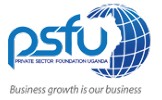The Agriculture Business Initiative (aBi Finance) has boosted the banking industry with the launch of Green Financing guidelines geared towards strengthening the capacity of lenders in Uganda to transition to Green Financing.
Green Financing is a financing model that aims at ensuring that all money loaned out, whether to the government or to the private sector, goes towards the protection of the environment or mitigation of the effects of climate change. It is in line with the growing campaign for lenders and investors to have in place Environment and Social Governance (ESG) at all levels of investment decisions.
aBi Finance Chief Executive Officer, Ms. Mona Muguma Ssebuliba revealed that in December 2022, aBi Finance launched a 120-billion Shillings financing initiative through the local financial industry towards green financing, and currently, 26 billion Shillings has been loaned out.
As an agricultural lender, aBi Finance emphasizes environmental protection in all production processes, hence the decision to launch Green Finance. Although there is the willingness of financial institutions to finance green agribusiness investments as evidenced by the growing demand for green lines of credit, there is still a lack of readiness to optimally operationalize green finance.
It has been noted that most financial institutions have not yet mainstreamed ESG practices in various aspects of their operations, pertaining to; internal policies, frameworks and standards, structures, products, staffing, skilling, and reporting systems. This lack of readiness limits the financial institution’s access to aBi’s green finance products.
“Lenders must get ready to adapt to the changing environment and the need to prevent further losses,” Muguma says.
The Green Finance Capacity Building Initiatives include developing a master environmental policy and supporting 40 financial institutions to customize, supporting them to develop or upgrade their loan products to offer green finance, among others.
Speaking at the launch, Uganda Bankers Association Executive Director, Wilbrod Owor urged aBi Finance to help the beneficiary financial institutions to prepare well and design appropriate products which would be attractive to the intended borrowers.
“This will avoid the shortcomings that befell the 200-billion-Shilling government rescue package to lift small businesses from the effects of Covid-19,” he noted.
The process of managing a green fund by a bank or micro-lender will require the availability of adequate information, which will help, for example assessing the viability and eligibility of a project, tracing its application, and monitoring its performance, among others.
This, according to Jacqueline Mbabazi, the Chief Executive Officer at the Association of Microfinance Institutions of Uganda, will make the digitization of processes even more essential. “While ESG is still optional in Uganda, there is a need for all lenders to have policies so that if or when it becomes compulsory, it will be easy for them to comply,” she said.
Bank of Uganda (BoU) Executive Director for Supervision, Twinemanzi Tumubweine believes that instead of looking for the profitability of investments, capital is now being targeted to areas where it will create more sustainability. In a statement read by Tumubweine, Deputy Governor, Michael Atingi-Ego said: “We are fast-tracking developing and implementation of enabling policy frameworks and incentives, robust regulatory measures, such as climate-related disclosures, carbon pricing mechanisms, and green finance standards sustainable investing.”
BoU is collaborating with other government agencies, regulators, and financial institutions, as well as local and international development partners with the aim of unlocking the full potential of green finance.
In a related development, aBi Finance in partnership with Uganda Institute of Banking and Financial Services (UIBFS) rolled out a countrywide capacity building training program on Green Finance activations. The trainings to be conducted in all the four regions of Uganda focus on training and supporting financial institutions on key dynamics of Green Financing including, green agribusiness investments for Climate Change Adaptation, Mitigation and Biodiversity Conservation. The campaign seeks to reach a combined 2,000 financial institutions staff countrywide.
“We believe that financial institutions have a strong reach on ground and since they talk to clients on the a daily basis, we do believe that if we train their staff, we shall have reached out to the agribusiness players in the value chain on how to adapt, mitigate and conserve the environment, “Mr. Moses Bwire, the Investments Manager – Green Growth Business Development Services at aBi Finance said during a training in Wakiso on Tuesday, 15 August 2023.
aBi Finance has also deployed consultants to hep financial institutions customize their ESG policies. As an investor in the agricultural value chain, aBi seeks to increase access to sustainable financial services for investment in green by developing green finance products, training staff on green finance and management of green loans and market-oriented/sector level greening awareness creation.
Jane Aik, an Associate Consultant with the UIBFS said that promoting green financing involves working with financial institutions to incorporate environmental factors into their lending portfolios. She said UIBFS is planning to introduce a course for bankers to grow their careers in green financing. “The institute is also looking at having programmes or courses that target the bankers to grow their careers around green financing and climate financing in general.”




